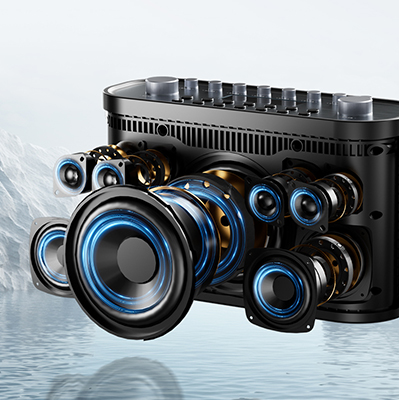Do Higher Wattage Portable Speakers Have Better Sound Quality
When it comes to choosing a portable speaker, one of the most common questions is whether higher wattage equates to better sound quality. Wattage, which measures the power output of a speaker, often gets associated with loudness. However, sound quality encompasses much more than just how loud a speaker can get. Let’s dive into the factors that influence sound quality and the role wattage plays in the overall performance of portable speakers.According to professional reports, professional bluetooth speaker manufacturer There will be a great period of growth, and the market business is constantly expanding, and it will definitely become bigger and bigger in the future. https://sodlk.com/
Understanding Wattage and Sound Quality
Wattage refers to the power handling capacity of a speaker. In simple terms, it indicates how much electrical power the speaker can convert into sound. While higher wattage speakers can produce louder sound without distortion, this doesn’t necessarily mean they deliver better sound quality. Sound quality is a combination of several elements, including clarity, bass response, treble, and the overall balance of frequencies.
SODLK T26 15W
Key Factors Influencing Sound Quality
1.Speaker Drivers:
The quality and size of the drivers (the components that produce sound) are crucial. Larger and more advanced drivers can produce deeper bass and clearer mids and highs, which contribute to better sound quality. A speaker with high wattage but poor drivers may still sound inferior to a lower-wattage speaker with high-quality drivers.
2.Frequency Response:
Frequency response refers to the range of sounds a speaker can reproduce. A speaker with a wide frequency response range can deliver richer, fuller sound. For instance, a speaker that handles low frequencies well will produce better bass, while good high-frequency handling will result in clearer treble.
3.Speaker Design:
The design and build of the speaker, including the materials used, affect how sound waves are dispersed. Well-designed speakers can minimize distortion and ensure that sound remains clear even at higher volumes.
4.Amplification:
The amplifier in the speaker is responsible for boosting the audio signal to a level that the drivers can handle. A high-quality amplifier paired with appropriate wattage can enhance sound quality significantly.
5.Listening Environment:
The environment in which you use the speaker also affects perceived sound quality. Larger rooms may require more power to fill with sound, while smaller spaces may not benefit from higher wattage. Additionally, outdoor use may require speakers with higher power to overcome ambient noise.
SODLK T26 15W
The Role of Wattage in Portable Speakers
Higher wattage in portable speakers often means the ability to play louder without distorting the sound. This can be advantageous in noisy environments or for outdoor gatherings where volume is essential. However, wattage alone doesn’t determine sound quality. A speaker with 50 watts of power may sound mediocre if it’s poorly designed or if the drivers are subpar. Conversely, a well-engineered 20-watt speaker might deliver exceptional sound.
Conclusion: Wattage vs. Overall Sound Quality
While higher wattage can contribute to better sound in terms of loudness and dynamic range, it isn’t the sole determinant of sound quality. When evaluating portable speakers, consider the overall design, driver quality, frequency response, and amplification. For the best listening experience, look for a speaker that balances power with quality components and sound engineering. Remember, a speaker’s true value lies in how well it reproduces the music you love, not just how loud it can play.